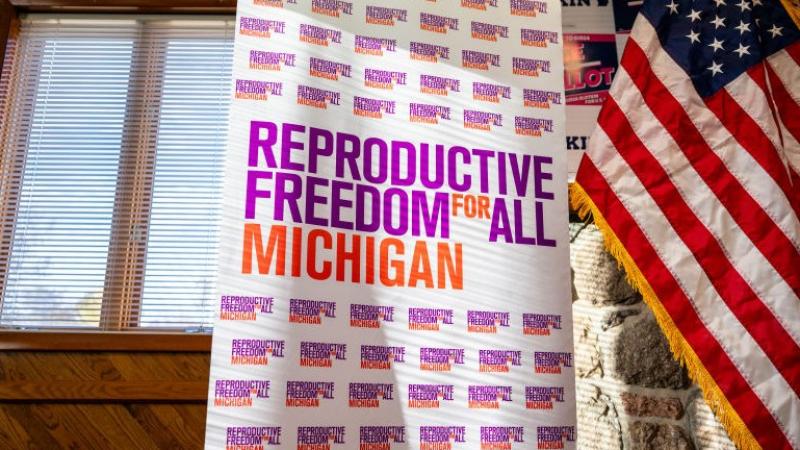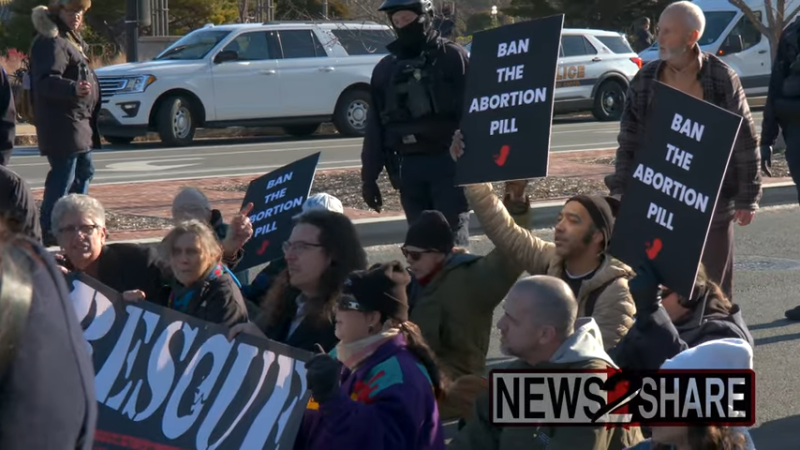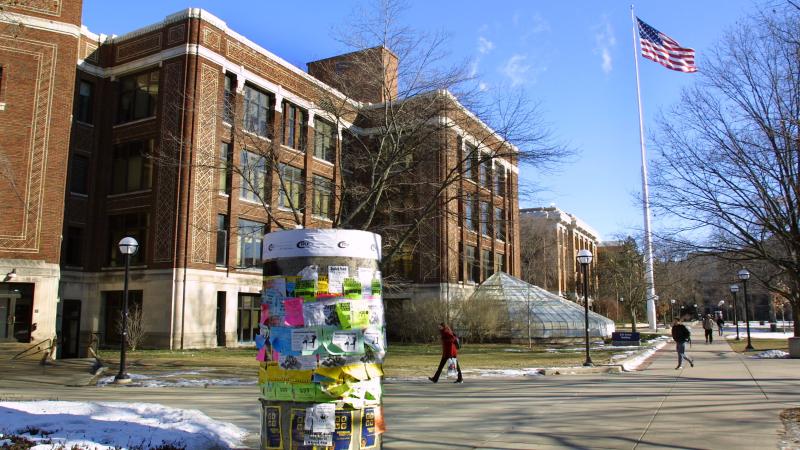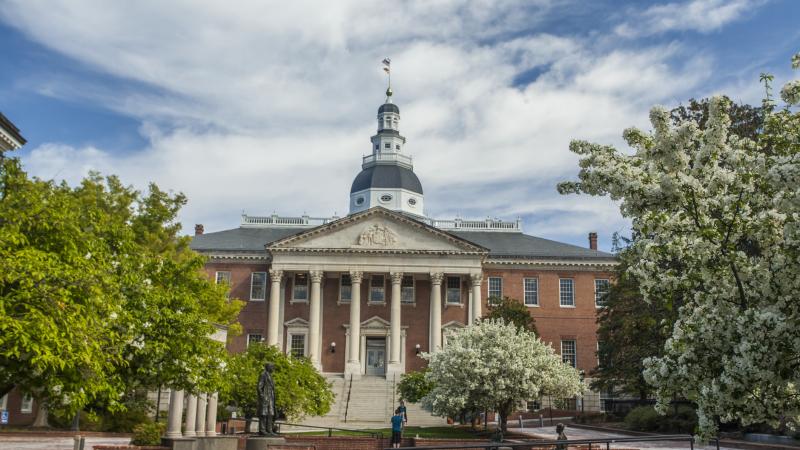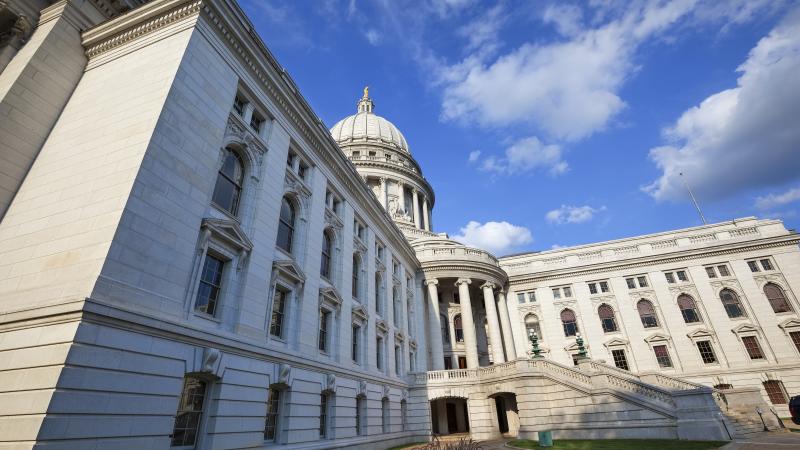Appeals court reinstates lawsuit against Oregon for forcing pro-life group into abortion plan
Oregon Right to Life's challenge must be reviewed in light of Supreme Court precedent against requiring "proselytization" to qualify for religious protections, Trump and Obama nominees say. State denied exemption based on "traditional Judeo-Christian beliefs."
The Pacific Northwest is a perilous region for religious organizations seeking to avoid complicity in abortion, with Washington claiming its sweeping abortion coverage mandate in health insurance doesn't make religious organizations complicit and insurers wouldn't necessarily offer abortion-free healthcare plans in the absence of a state mandate.
The 9th U.S. Circuit Court of Appeals threw a lifeline to a pro-life group challenging Oregon's abortion insurance mandate by finding its beliefs are "religious and sincerely held," invoking a unanimous Supreme Court precedent earlier this year that protected a Catholic Charities bureau from participation in a pricey state unemployment compensation program.
A divided three-judge panel ordered a lower court to reevaluate whether the state Reproductive Health Equity Act "as applied" to Oregon Right to Life violated its free exercise under the First Amendment in light of Catholic Charities, "which reiterated the constitutional significance of exemptions granted to some religiously motivated organizations but not others."
"The First Amendment would ring hollow if courts were allowed to simply declare that plainly religious beliefs are not religious," said ORTL's attorney James Bopp, who is also representing National Right to Life and its Idaho affiliate against "overbroad and unconstitutional subpoenas" in a challenge to Idaho's ban on so-called abortion trafficking, currently blocked.
“Of course, it is absurd on its face that Oregon Right to Life—a pro-life organization dedicated to opposing abortion—should be forced to provide insurance for abortions," Executive Director Lois Anderson said.
“We are still reviewing the decision, but it’s important to be clear about what happened," Jenny Hansson, director of communications for Oregon Attorney General Dan Rayfield, told Just the News in an email, emphasizing it was "procedural" and "does not call Oregon’s Reproductive Equity Act into question."
RHEA "remains a vital protection for ensuring Oregonians can access the full range of reproductive and other essential health care services," Hansson wrote. "We will continue to defend those rights at every step and use every tool available to make sure Oregonians can get the care they need, when they need it."
This summer, a different panel inexplicably withdrew its divided ruling dismissing Cedar Park Assembly of God's challenge to Washington's mandate for lack of standing, which had prompted 18 states and several religious freedom groups to seek full-court rehearing. An Oct. 26 docket entry shows new oral arguments are scheduled for Jan. 8, 2026.
The withdrawal followed several weeks after Catholic Charities, but the church's lawyers at the Alliance Defending Freedom had also notified the 9th Circuit of a Supreme Court ruling that contradicted its reasoning, letting gasoline producers challenge the Environmental Protection Agency's approval of California's cap on gas-powered cars as an injured party.
"When an appellate panel vacates a decision and orders re-argument in response to a petition for rehearing en banc [full court], that’s presumably because two or more of the panel members now believe that the original decision contained errors," ADF senior counsel John Bursch told Just the News Friday.
"We look forward to re-arguing that Washington State cannot compel churches to violate their deeply held beliefs by forcing them to purchase health plans that cover abortion," he wrote in an email.
Carter nominee misunderstood 'the whole point of this lawsuit'
President Trump-nominated Judge Lawrence VanDyke, recently in the news for sharing his "CrossFit meets shooting" hobby at the Federalist Society's annual lawyers convention, wrote the majority opinion reinstating the lawsuit and a concurrence deeming RHEA likely unconstitutional under Catholic Charities for "denominational discrimination."
The eight-year-old law includes three exemptions: for insurers who excluded abortion in all plans "during the 2017 plan year," for religious employers whose "purpose is the inculcation of religious values" and primarily employ and serve those who share their "religious tenets," and when enforcement against healthcare entities could trigger federal defunding.
"ORTL’s religious motivations and beliefs are overt and long-established … announced throughout" its governing documents, shared by its board and "publicly declared" predating the litigation, citing "traditional Judeo-Christian ethics" and "the sanctity of all human life from the moment of conception to natural death," VanDyke wrote.
Joined by President Obama-nominated Judge John Owens, VanDyke faulted the dissent by Senior Judge Mary Schroeder, nominated by President Carter, for allegedly misunderstanding "the whole point of this lawsuit."
Schroeder and President Clinton-nominated Senior U.S. District Judge Ann Aiken, who both handle reduced caseloads as aging jurists, emphasized ORTL's admission that it "does not consider itself to be a religious organization" without recognizing that ORTL was speaking in the context of RHEA's narrow definition of a "religious employer," VanDyke said.
"ORTL asked for an exemption both when RHEA was passed and during this litigation" but lost the legislative fight, so it did not "ask for an exemption under the statute," VanDyke wrote. It sued to get the exemption it was denied due to "the legislature’s decision to pick and choose among religious organizations," he said, quoting ORTL.
The group had testified against the bill in two committees before seeking an exemption in the final bill, claiming it would violate its "deeply held beliefs" and the Weldon Amendment, the long-running anti-abortion anti-discrimination provision suspected as the impetus for the "federal funds" exemption, VanDyke said.
The Oregon Department of Consumer and Business Services, the institutional defendant, then denied ORTL's exemption request based on its "traditional Judeo-Christian beliefs" two years after RHEA's approval.
The dissent also muddled the issue by noting members can join ORTL for nonreligious reasons and claiming that "traditional Judeo-Christian ethics" do not "necessarily suggest the religious belief that life begins at conception," which is irrelevant to "the motivations of its controlling leadership and governing documents," VanDyke wrote.
Judging organizations by their members would additionally implicate the sincerity of religious beliefs by the religious employers exempted from the law, which ORTL understands "in effect" to be churches, mosques and synagogues, VanDyke wrote.
Some people attend religious services to "please a relative," the Trump nominee wrote — quoting Judge Schroeder's speculation about ORTL members — or for "social reasons." If an organization's "religiosity turns on divining the pure 'religious' motivations of all members," it's doubtful if any would "qualify for basic First Amendment protections," VanDyke said.
'Proselytization' requirement already banned by SCOTUS
His concurrence elaborates that Catholic Charities requires the 9th Circuit to evaluate Oregon's law under strict scrutiny, the most demanding judicial tier of review, saying "it is rare to encounter a case with a Supreme Court case so clearly on point."
In a unanimous opinion by Justice Sonia Sotomayor, SCOTUS overturned the Wisconsin Supreme Court's finding that the Catholic Charities bureau's work is primarily secular, so it can't get a religious exemption from paying into the state unemployment compensation system, which costs more than its own in the Diocese of Superior.
Sotomayor deemed this "a denominational preference" that unconstitutionally plays favorites by "differentiating between religions based on theological lines," and VanDyke applied it to Oregon's RHEA exemptions.
Even if Oregon is correct that "these exemptions do not favor the secular over the religious," they are still not neutral among religions, violating the SCOTUS precedent Smith that limits religious exemptions under "neutral, generally applicable" laws, he wrote.
"The 'inculcation of religious values' aspect of Oregon’s definition cannot be distinguished in any relevant way from Wisconsin’s consideration of proselytization," VanDyke said.
The Beaver State has "conceded the point" that its definition of a religious employer "plainly discriminates against certain religious organizations," excluding those who "focus on feeding the poor," which would force even Catholic Charities to get abortion coverage, he said.
Regardless of whether the so-called legacy exemption for plans that didn't cover abortion in 2017 privileged "secular conduct" or was intended to shield Catholic-sponsored Providence Health Plans – which Oregon later applied to Samaritan Health Plans as well — both explanations run afoul of SCOTUS precedents, according to VanDyke.
The Facts Inside Our Reporter's Notebook
Videos
Links
- doesn't make religious organizations complicit
- insurers wouldn't necessarily offer abortion-free healthcare plans
- unanimous Supreme Court precedent
- ordered a lower court to reevaluate
- ORTL's attorney James Bopp
- representing National Right to Life and its Idaho affiliate
- abortion trafficking, currently blocked
- different panel inexplicably withdrew
- divided ruling
- 18 states and several religious freedom groups
- An Oct. 26 docket entry shows
- Alliance Defending Freedom had also notified
- letting gasoline producers challenge
- "CrossFit meets shooting" hobby
- SCOTUS precedent Smith
